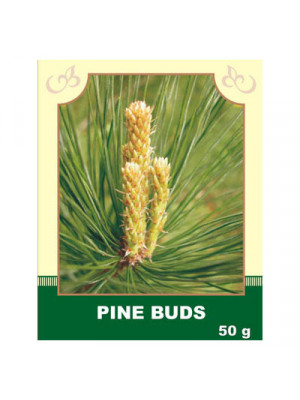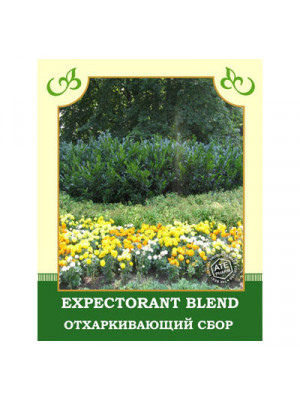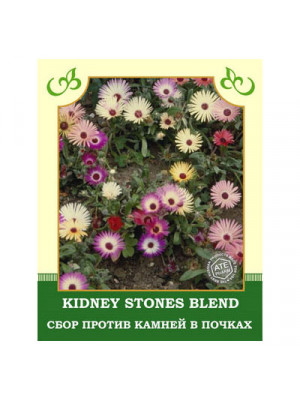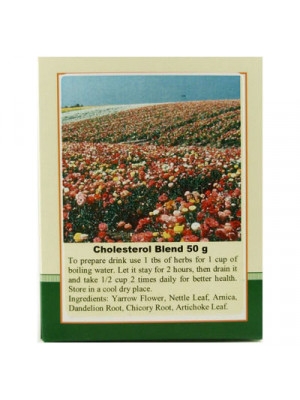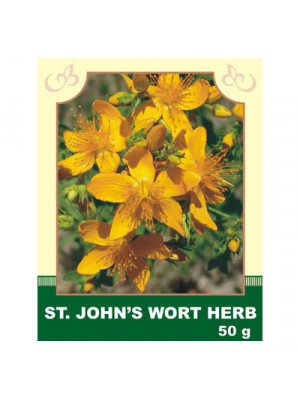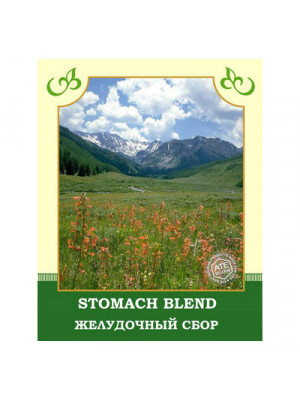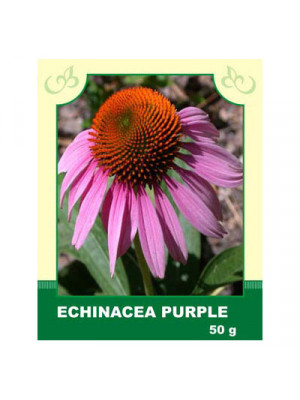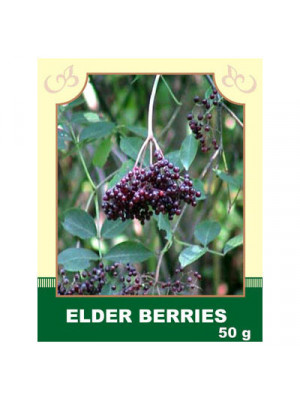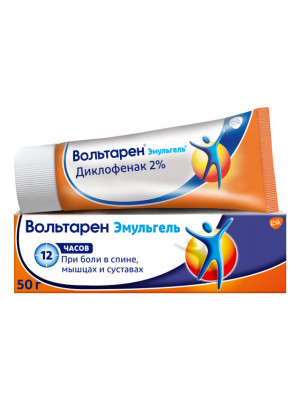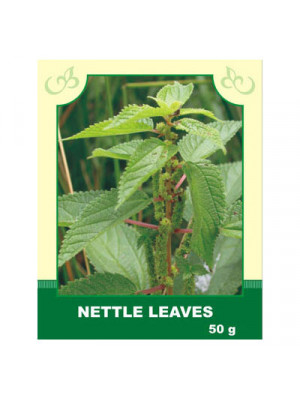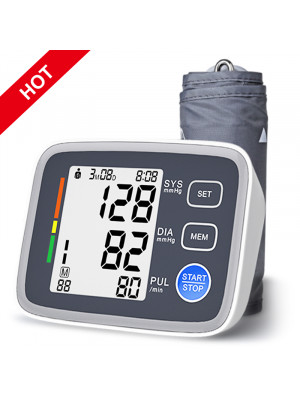Search results for 'Chamomile Flowers 50 g'
Internally: Taken as a remedy for cough in diseases of the upper respiratory tract, as an expectorant and disinfectant in chronic bronchitis, chronic tonsillitis, and acute respiratory diseases. Also possess diuretic and cholagogue properties.
Method of application and doses: 1 tablespoon of kidney pours 200 ml of boiling water, boils in a water bath for 30 minutes, infuses at room temperature for 10 minutes, strains, the resulting infusion is brought to the original volume with boiled water and taken in 1/2-1/3 glass 2-3 times a day after meals.
Externally: Applied in the form of baths in the treatment of the nervous and cardiovascular systems, rickets in children; as inhalations for diseases of the upper respiratory tract. For baths: 500 g per 5 liters of water boil for 30 minutes, strain, add the obtained decoction to the main bath.
Contraindications: Individual intolerance, in nephritis and nephrosis.
$7.99Composition: marshmallow, pine buds, licorice, thyme, sage.
For inflammatory respiratory conditions accompanied by cough and bronchospasm.
$6.99Composition: horsetail, nettle, hawthorn fruit, knotweed.
Helps remove stones from the kidneys and bladder and helps me achieve new ones.
$5.40- Contains: Yarrow flowers, Nettle leaves, Arnica flowers, Dandelion root, Chicory root granules, and Artichoke leaves. Uses:Cholesterol Blend has antioxidant properties which help to relax the peripheral blood vessels, improve blood flow and overall health. The plant extracts help to lower circulating levels of total cholesterol in the plasma of the blood.
Warning! Before using any herbal products, make sure that you have full knowledge of how the herb works and any adverse reaction it may cause. For more detailed information about each herb see Herbs section.$6.99
Description. Herb and flowers contain different flavonoids (rutin, hyperoside, isoquercetin, quercitrin, quercetin, amentoflavone, astilbin, miquelianin), phenolic acids, phloroglucinols and essential oils. St. John's Wort has recently become one of the heavyweight herbs in medicine, mostly due to it's reputed anti-depressant effects. St John's wort is most widely known as a herb for major depression. In some countries, such as Germany, it is commonly prescribed for mild depression, especially in children, adolescents, and where cost is a concern. Lesser known medicinal attributes of this plant include usefulness as an antiseptic, pain killer, and anti-viral agent. Water infusion of St. John's Wort Herb is good for heart disorders, irritability and insomnia, for improoving bile composition and liver disorders (powerful diuretic)and for women's urogenital inflammations. St.John's Wort due to its high bio-active effect is an excellent support for men's health! Uses. St. John's wort has also shown results in the following conditions, a few of which are related to depression. They are alcoholism, bacterial infections, premenstrual syndrome, seasonal affective disorders, viral encephalitis, wounds, minor burns, hemorrhoids. Moreover, internally, St. John's Wort is believed to be of benefit for symptoms of anxiety, cough, digestion, bronchial problems, diarrhea, fatigue, flu, gout, insomnia, irritability, and ulcers. Externally, St. John's Wort can be applied for bruises, wounds, burns, hemorrhoids, sunburn, herpes sores, varicose veins, sciatica, and nerve pain. Avoid taking the herb if you are hypertonic. Water infusion is used as a mouthwash for weak gums, parodontosis and other oral inflammations.
Attention! Before using any herbal products, make sure that you have full knowledge of how the herb works and any adverse reaction it may cause.$6.99Composition: buckthorn bark, nettle, peppermint, valerian root, calamus root.
Spasms of the smooth muscles of the digestive tract, spastic constipation (as a mild laxative).
$6.99Internally. Taken to stimulate the immune system, prevent and treat bacterial diseases, viral flu, chronic inflammations, poliomyelitis, herpes, and also used in skin grafts. Echinacea helps with arthritis, hepatitis, cystitis, leukemia, sepsis, prostatitis, and prostate hypertrophy.
Method of use and dosage: The tincture is prepared at a mass ratio of 1:10 in 70% alcohol. Take 20-30 drops 3 times a day. Decoction: 1 tablespoon of crushed leaves is poured with 200 ml of boiling water, boiled with a closed lid on low heat for 5 minutes, and strained. It is consumed throughout the day in small portions.
External use: Used for psoriasis, eczema, trophic ulcers, first-degree burns, frostbite, and severe bedsores.
Contraindications: Individual intolerance.
$6.99Internally, it is taken for diabetes, edema, dropsy, diarrhea, dysentery, and pains and cramps in the abdomen.
Method of application and dosage: 1 tablespoon is poured with 200 ml of boiling water, heated on a water bath with the lid closed for 15 minutes. Cooled at room temperature for 45 minutes, strained. The obtained infusion is consumed warm, 1-1.5 cups 2-3 times a day.
Contraindications: Individual intolerance.
$6.99
Description. Nettle is very popular with herbalists and homoeopathists. Nettle consists of formic acid, mucilage, mineral salts, ammonia, carbonic acid and water. The herb also contains vitamins C, K, B2, carotin, and nutrients like iron, potassium, calcium, sulfur and proteins. Nettle leaf produces styptic, blood and bile expelling, diuretic, purgative, anti-inflammatory, antiseptic, antispasmodic, expectorating, spasm inducing and tonic effect. Nettle leaf preparations help improve blood coagulability, raises the quantity of hemoglobin, platelets and red corpuscles in blood. It also helps lower the quantity of sugar in blood and has a stimulating action. Do not use in cases of hypersensitivity, thick blood, diseases requiring surgical intervention. Use with care with kidney problems. Use. Use in cases of hemorrhages (including pulmonary hemorrhage, blood in urine, intestinal and hemorrhoid hemorrhage), vitamin deficiency, arteriosclerosis, inflammation of the gallbladder, ulcer of the stomach and the upper small intestines (duodenum), constipation, inflammation of the small intestines, non-healing festering wounds, surface ulcers, boils, herpes, acne, bed sores, iron deficiency anemia, kidney diseases, diseases of the respiratory tract, poly-mecorrhea, fibroid tumors of the uterus, epilepsy, hysteria, rheumatoid arthritis, aches and pains in the muscles, gout, diabetes mellitus, angina, and to improve gums and hair growth.
Attention! Before using any herbal products, make sure that you have full knowledge of how the herb works and any adverse reaction it may cause.$6.99


